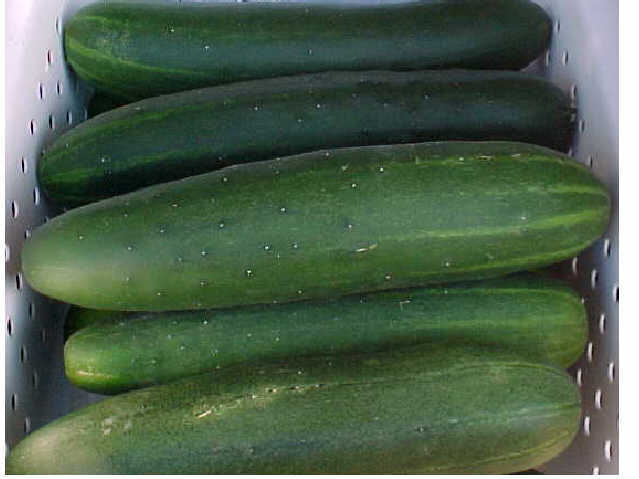The massive ground turkey recall that Cargill Inc. announced this week is raising questions about whether federal food safety regulators should have moved faster to limit a nationwide salmonella outbreak.
I told Mike Hughlett and David Shaffer of Minnesota Star Tribune that, "Part of the problem is the absence of clear guidelines about when to go public."
Doug Powell, a food safety expert at Kansas State University who felt that the recall process was slow with the ground turkey, said food regulators appeared to become more .jpg) conservative after a big salmonella outbreak in 2008. The U.S. Food and Drug Administration first linked it to tomatoes, only to find out later that jalapeno peppers were the most likely cause. The tomato industry cried foul after it got crushed financially.
conservative after a big salmonella outbreak in 2008. The U.S. Food and Drug Administration first linked it to tomatoes, only to find out later that jalapeno peppers were the most likely cause. The tomato industry cried foul after it got crushed financially.
The recall that Minnetonka-based Cargill announced late Wednesday covers 36 million pounds of ground turkey, one of the biggest U.S. meat recalls. It’s linked to a particularly virulent strain of salmonella that has infected 78 people in 26 states and led to one death.
The recall involves ground turkey produced as early as February, and the U.S. Department of Agriculture had indications going back to at least July 20 that the culprit might be a Cargill plant in Arkansas.
The timing of the recall highlights a dilemma for the nation’s food regulators over when to go public with recall information. Go too late, and public health could suffer. Go too early and make a mistake, and a corporation or industry’s reputation could unduly suffer.
In Sacramento County, Calif., where a woman older than 65 died in June from the latest outbreak, the county’s health officer brought up another factor bedeviling food regulators these days: budget cutting.
Dr. Glennah Trochet said her department now responds more slowly to outbreaks, sometimes delaying investigations a week or two. Public health workers often aren’t available to interview possible victims. She suspects other agencies face the same constraints. "If you want rapid response, you need to have the resources to do rapid response," Trochet said.
This is something I hear from public health types across the country; it’s almost amazing outbreaks get tracked down at all given the fiscal mess at the state and local levels.
The salmonella outbreak linked to Cargill ground turkey began in early March. Chris Braden, the Centers for Disease Control and Prevention’s director of foodborne diseases, said on .jpg) Thursday that it was a slowly building outbreak in the beginning.
Thursday that it was a slowly building outbreak in the beginning.
After recognizing an "unusual clustering" of Salmonella Heidelberg cases, the CDC began investigating on May 23, Braden said. About the same time, routine surveillance by a federal food monitoring system found the same strain of Salmonella Heidelberg in ground turkey in stores.
The monitoring service found four positive samples, one each in April, May, June and July, Braden said. Those four samples were traced to Cargill’s Arkansas plant, he said, though he didn’t elaborate on when.
David Goldman, a public health administrator in the USDA’s Food Safety and Inspection Service, told reporters that by July 20 or 21, the agency had traced back two cases from the salmonella outbreak to Cargill’s Arkansas plant. A third traceback to the same plant was confirmed last week.
Late Friday, the USDA put out a public warning about salmonella dangers in ground turkey, without naming the suspected source. Recalls are often initiated when food regulators tell a company they suspect it’s the source of an outbreak.
marked with FLT DATE of 08/23/11 and 08/30/11. Retailers may have bundled or wrapped the hot basil in small foam trays prior to placing on retail shelves.

.jpg) turkey processing business said at the time, the company has implemented the most aggressive salmonella monitoring and testing program in the poultry industry.
turkey processing business said at the time, the company has implemented the most aggressive salmonella monitoring and testing program in the poultry industry..jpg) • 48.0 oz. (3 lb.) trays of Kroger Ground Turkey Fresh 85/15 with Use or Freeze by Dates of 09/17/2011, 09/18/2011 and 09/19/2011
• 48.0 oz. (3 lb.) trays of Kroger Ground Turkey Fresh 85/15 with Use or Freeze by Dates of 09/17/2011, 09/18/2011 and 09/19/2011.jpg) the Ohio Department of Agriculture’s mark of inspection.
the Ohio Department of Agriculture’s mark of inspection.
.jpg) conservative after a big salmonella outbreak in 2008. The U.S. Food and Drug Administration first linked it to tomatoes, only to find out later that jalapeno peppers were the most likely cause. The tomato industry cried foul after it got crushed financially.
conservative after a big salmonella outbreak in 2008. The U.S. Food and Drug Administration first linked it to tomatoes, only to find out later that jalapeno peppers were the most likely cause. The tomato industry cried foul after it got crushed financially..jpg) Thursday that it was a slowly building outbreak in the beginning.
Thursday that it was a slowly building outbreak in the beginning..jpg) according to Daniel R. Levinson, inspector general of the Department of Health and Human Services.
according to Daniel R. Levinson, inspector general of the Department of Health and Human Services.  people, and others with weakened immune systems.
people, and others with weakened immune systems.  involved.
involved..jpg) wouldn’t be surprised if it turns out walnuts aren’t to blame for an outbreak of E. coli in three provinces.
wouldn’t be surprised if it turns out walnuts aren’t to blame for an outbreak of E. coli in three provinces..jpeg) still on store shelves in Montreal.
still on store shelves in Montreal. beef and eggs, customers came back in a matter of weeks.
beef and eggs, customers came back in a matter of weeks..jpeg)
 salmonella. These products have been distributed in Ontario.
salmonella. These products have been distributed in Ontario.